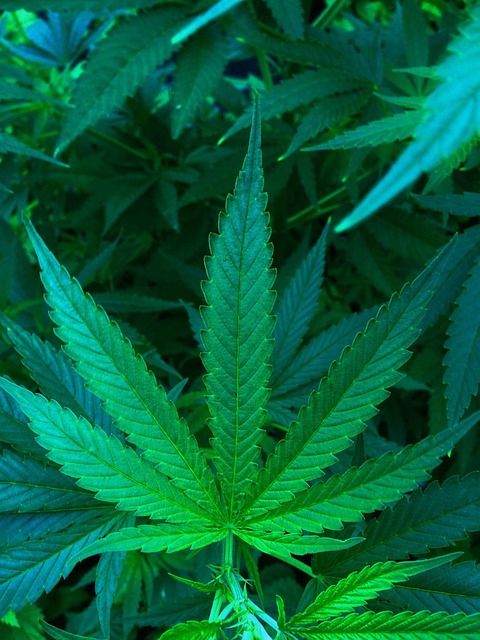Share This Article:

Pa. Top Court will Consider Cannabis, Lower Court found it Covered under Comp Act
06 May, 2024 Frank Ferreri

Harrisburg, PA (WorkersCompensation.com) -- Last week, the Supreme Court of Pennsylvania granted a Petition for Allowance of Appeal in Schmidt v. Schmidt, Kirifides and Rassias, PC, 2024 WL 1873090 (Pa. 04/30/24). When the case comes before the court, the big question it will address is whether "medical services" and "medicines and supplies" under the commonwealth's Workers' Compensation Act include cannabinoid oil.
In the case that spurred the petition, Schmidt v. Schmidt, Kirifides and Rassias, PC, 305 A.3d 1137 (Pa. Commw. Ct. 2023), the Common Court of Pennsylvania held that the workers' compensation judge was correct to find that CBD oil was both a "medicine" and a "supply" compensable under the act.
How did the court get there?
The case involved an attorney, who sustained a work injury when, in a squatting posture, he loaded files into a trial bag for work, tipped the trial bag onto its wheels, had back pain, and fell over on his side. The attorney's work injury treatment was limited to pain management, for which he was prescribed oxycodone, OxyContin, Soma, Ativan, Zoloft, and CBD oil. The CBD oil was prescribed in lieu of increasing the attorney's dosages of pain medication.
The WCJ determined that the employer was liable to pay for the cost of the CBD oil, which had no THC in it, because it was a medical supply and part of the attorney's reasonable and necessary medical treatment.
On appeal, the Workers' Compensation Appeals Board disagreed, prompting the attorney to take the case to court.
Under Pennsylvania workers' compensation law, employers must provide payment for "reasonable surgical and medical services," which includes "medicines and supplies, as and when needed."
In upholding the WCJ, the Commonwealth Court agreed that the CBD oil met the act's standard for "medicines and supplies" because:
+ A doctor prescribed the CBD oil to the attorney to treat his pain.
+ The CBD oil benefited the attorney's well-being by reducing his pain, eliminating his need to increase the use of highly addictive opioid medications, and forestalling "expensive and risky" surgery.In the court's view, this was in line with dictionary definitions of "medicine" ("a substance or preparation used in treating disease[;] [ ] something that affects well-being; ... [ ] a substance (such as a drug or potion) used to treat something other than disease”) and "medical supplies" ([a]ny item that is essential for treating illness or injury”).
But isn't cannabis illegal under federal law?
The employer didn't build its case well enough to satisfy the court on this argument, instead relying on "literature from the FDA's website providing consumer information about products containing cannabinoids."
The court went on to explain that the fact that some firms marketing CBD products may violate federal law and that selling approved products with unsubstantiated therapeutic claims violates federal did not make the attorney's use or the employer's reimbursement for CBD oil illegal.
"There was no record evidence that the CBD oil [the employee] used is illegal under federal law," the court wrote.
The court looked to Appel v. GWC Warrant Corp., 291 A.3d 927 (Pa. Commw. Ct. 2023), which held that since an employer was not "prescribing marijuana" but was just reimbursing a claimant for his lawful use thereof, the employer was not in violation of federal law.
"Certainly, if employers must reimburse employees for their use of a drug Congress has declared illegal, the fact that the FDA has merely declared that some firms’ marketing of CBD oil illegal cannot be an impediment to employers reimbursing employees when their use of CBD oil is legal and reasonable and necessary treatment of their work-related injury," the court wrote.
Thus, the court reversed the board's decision.
Will the Pennsylvania Supreme Court agree? Stay tuned.
AI california case management case management focus claims compensability compliance courts covid do you know the rule emotions exclusive remedy florida FMLA fraud glossary check Healthcare health care hr homeroom insurance insurers iowa leadership medical NCCI new jersey new york ohio osha pennsylvania roadmap Safety state info technology texas violence WDYT what do you think women's history women's history month workcompcollege workers' comp 101 workers' recovery Workplace Safety Workplace Violence
Read Also
- Apr 24, 2025
- Claire Muselman
- Apr 24, 2025
- Chris Parker
About The Author
About The Author
-
Frank Ferreri
Frank Ferreri, M.A., J.D. covers workers' compensation legal issues. He has published books, articles, and other material on multiple areas of employment, insurance, and disability law. Frank received his master's degree from the University of South Florida and juris doctor from the University of Florida Levin College of Law. Frank encourages everyone to consider helping out the Kind Souls Foundation and Kids' Chance of America.
More by This Author
Read More
- Apr 24, 2025
- Claire Muselman
- Apr 24, 2025
- Chris Parker
- Apr 24, 2025
- Anne Llewellyn
- Apr 23, 2025
- Claire Muselman
- Apr 23, 2025
- Anne Llewellyn
- Apr 21, 2025
- Claire Muselman




